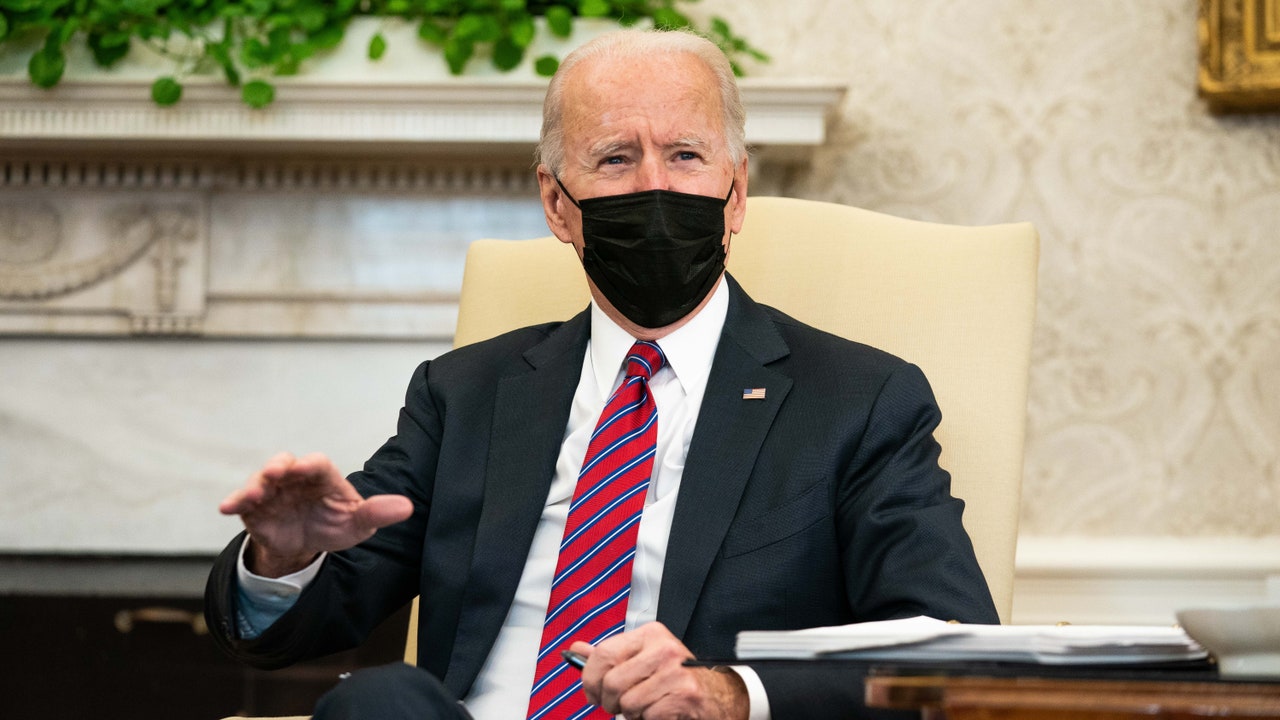Shortly past 5:30 on Friday morning, after nearly 15 straight hours of debate, the Senate took a crucial step toward approving President Joe Biden’s ambitious $1.9 trillion pandemic relief package, with Vice President Kamala Harris returning to the Capitol in the pre-dawn hours to cast the first tie-breaking vote of her vice presidency.
The 51-50 vote was cast strictly along party lines. Biden had spent the first two weeks of his presidency trying to win bipartisan support for his legislation but vowed to move forward without Republican backing if needed. As administration officials have been pointing out, they did not want to repeat the mistake of 2009, when the Affordable Care Act faltered for months while newly elected President Barack Obama tried to win Republican support, only to finally abandon those bipartisan efforts when it became clear that those votes would never be won.
Biden did meet on Monday evening with 10 Senate Republicans after they offered a $618 billion counterproposal—but that was largely just a performative attempt at reaching across the aisle. The White House never indicated any willingness to back away from the $1.9 trillion price tag or seriously consider a Republican alternative.
In addition to sending out a new round of stimulus checks, Biden’s budget proposal would increase the child tax credit, extend enhanced unemployment benefits through September, provide rental assistance and money for nutrition programs, send $130 billion to schools to help them reopen, and allocate $160 billion for a national vaccination program, increased testing and other health-care spending to address the coronavirus pandemic.
“We now come to the end of the debate that has gone on for over 14 hours, and we end this debate in a moment in which our country faces more crises, more pain, more anxiety than any time since the Great Depression,” Senator Bernie Sanders, the newly installed chairman of the Budget Committee, said early Friday morning. “But we have the opportunity to give hope to the American people and restore faith in our government by telling them that tonight we understand the pain that they are experiencing and we are going to do something very significant about it.”
Republicans, now in the minority after its two Senate losses in Georgia, criticized the budget package but all but conceded they were powerless to stop it. “This is not the time for trillions more dollars to make perpetual lockdowns and economic decline a little more palatable,” said Senate Minority Leader Mitch McConnell. “Notwithstanding the actual needs, notwithstanding all the talk about bipartisan unity, Democrats in Congress are plowing ahead. They’re using this phony budget to set the table to ram through their $1.9 trillion rough draft.”
